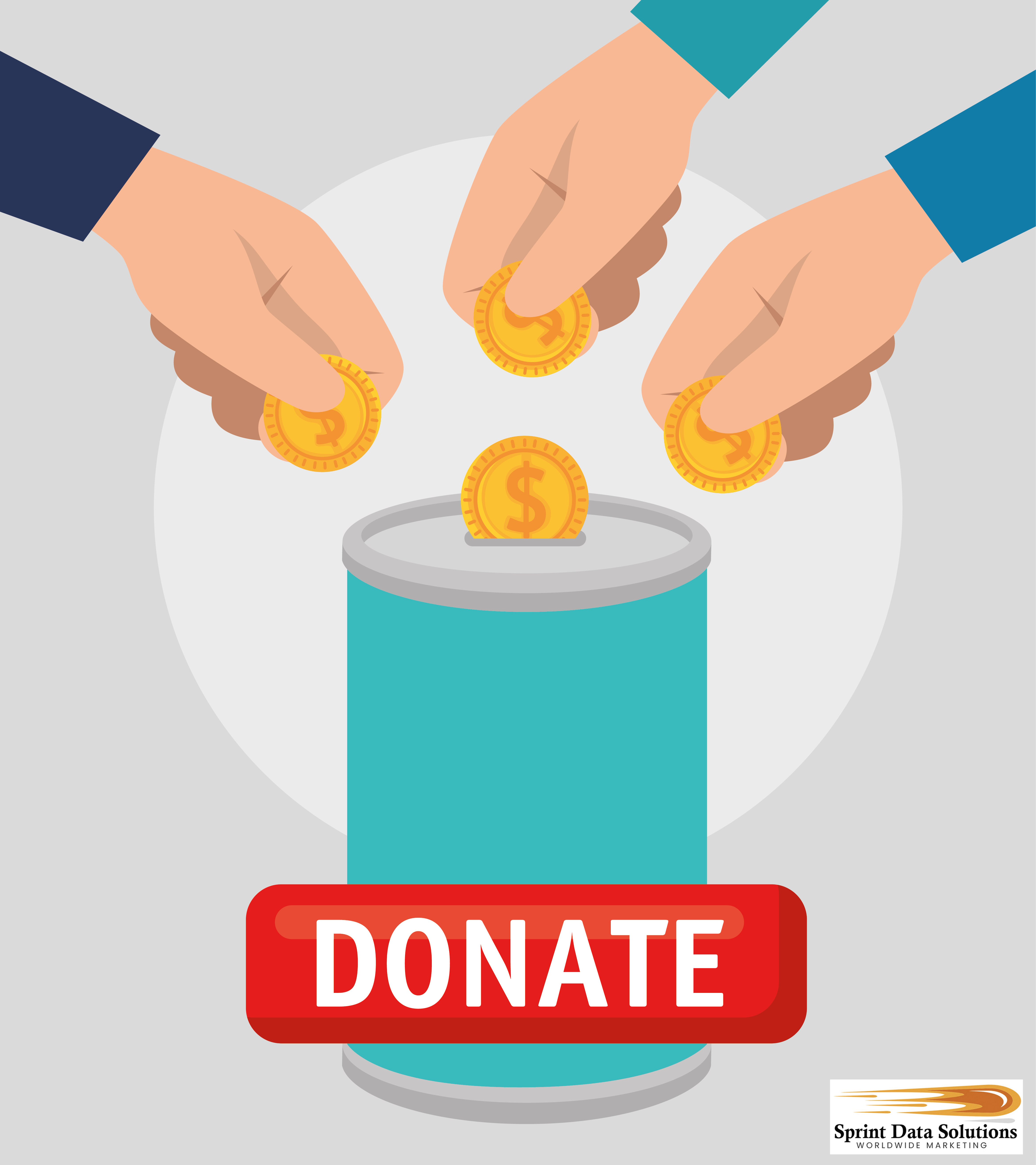The Best Way To Get The Most Donations Is To Find The Right Donors
One of the enduring truths of society is that not every organized endeavor is created with the primary aim of financial profit. In fact, a substantial portion of initiatives is founded specifically to advance humanitarian, environmental, educational, or social causes without the expectation of monetary return. Non-profit organizations and charitable foundations exemplify this purpose-driven model, dedicating immense time, passion, expertise, and resources to improving lives and addressing global challenges. Their missions may involve rescuing neglected animals, delivering safe drinking water to marginalized communities, providing critical educational opportunities to disadvantaged children, championing human rights, or driving innovations in medical research that have the potential to benefit all of humanity.
Despite the selflessness of their objectives, these organizations are not exempt from the practical demands of operational sustainability. Essential expenditures such as salaries for qualified staff, office and facility costs, technological infrastructure, transportation, program development, marketing, and public outreach are unavoidable. However, unlike traditional businesses that generate revenue through the sale of goods or services, non-profits depend largely on external financial support to underwrite their activities. Contributions from private individuals, corporate sponsors, philanthropic foundations, and government grants form the cornerstone of their funding ecosystems. Moreover, in an increasingly competitive and economically uncertain landscape, cultivating a strong and loyal donor base has become a strategic imperative.
Today, successful non-profits must excel not only in their core missions but also in demonstrating transparency, communicating measurable impact, and building authentic relationships with supporters. Storytelling, data-driven reporting, social media engagement, and effective stewardship practices have evolved into critical components of fundraising efforts. Without consistent inflows of donations and public trust, even the most noble organizations risk stagnation or collapse. In essence, a non-profit’s ability to market its vision and validate its effectiveness parallels the operational rigor of for-profit enterprises, emphasizing that while profit may not be the goal, financial resilience is essential for meaningful, long-term change.

A Spectrum Of Worthy Causes
If there’s one thing that American charities consistently provide, it’s a broad and inspiring selection of causes for the public to support. From healthcare initiatives and educational programs to environmental conservation and community development, virtually every facet of American life can benefit from additional financial assistance. Even modest individual donations, when pooled together from a wide base of supporters, can drive significant change and create lasting impact. Moreover, many corporations and high-net-worth individuals also choose to allocate portions of their substantial profits toward philanthropic endeavors, helping to amplify the reach and effectiveness of these charitable efforts. Sprint Data Solutions Worldwide Marketing offers a meticulously curated and comprehensive database of donors across a wide range of causes, ensuring organizations can effectively connect with individuals and businesses who are ready to make a meaningful difference.
Donor Mailing Lists
If the goal is to identify individuals or businesses that have contributed to any cause—regardless of topic or affiliation—there exists a vast, comprehensive database of donors spanning all income levels and sectors. Across the United States, generous contributors can be found in every region, making it possible to refine the search based on specific geographic areas, demographic profiles, donation amounts, or cause categories. With the right filtering criteria, it becomes easy to target potential supporters who align with particular fundraising efforts or outreach campaigns, ensuring a more strategic and effective engagement.
Food Bank Donors
While every American aspires to have a reliable and sufficient income to provide for basic needs—particularly when supporting a family—life’s uncertainties often disrupt those plans. Economic downturns, sudden layoffs, natural disasters, medical emergencies, and other unforeseen hardships can quickly turn financial stability into insecurity. In such difficult circumstances, even affording daily meals can become a daunting challenge. For many, the struggle to put food on the table is not a matter of poor planning, but the result of systemic issues and unpredictable personal crises that can affect anyone, regardless of background or ambition.
Many people feel the need to help those struggling with even the basic need for food. They are willing to donate either money or food products to help out those for whom the next meal is not something they can take for granted. Food banks exist in all major urban centers, so this is a matter of people picking their preferred destination.
Homeless Shelter Donors
Another urgent and growing issue, particularly in large metropolitan areas, is homelessness. During certain times of the year—especially in harsh winter months—those without permanent shelter face life-threatening conditions, including exposure-related illnesses such as hypothermia and frostbite. In extreme cases, prolonged exposure can tragically result in death.
The causes of homelessness are complex and multifaceted. Some individuals become homeless after fleeing domestic violence, seeking safety away from abusive households. Others may suffer from untreated mental health conditions such as schizophrenia, bipolar disorder, or severe depression, which can impair their ability to maintain employment or manage housing responsibilities. Additionally, economic instability—such as sudden job loss, overwhelming medical expenses, or the soaring costs of housing in many cities—can quickly push vulnerable individuals or families into homelessness. Even those who are employed may find themselves without a home, as wages often fail to keep pace with the rising cost of living.
Homelessness is a national issue, affecting cities and towns across the United States, from dense urban cores to smaller rural communities. In response, a variety of shelters and transitional housing programs exist to provide temporary refuge. These facilities often offer not just a place to sleep but also access to critical services like meals, mental health support, substance abuse treatment, job placement assistance, and case management. The ultimate goal is to help individuals regain stability and, eventually, secure permanent housing.
Addressing homelessness requires a community-wide effort. Many people are eager to contribute, whether by donating financial resources, essential supplies like blankets and hygiene kits, or their own time through volunteer work. Volunteering at shelters, providing mentorship, participating in food drives, or advocating for policy changes that support affordable housing initiatives are all ways that individuals and organizations can make a tangible difference. Ending homelessness is a complex challenge, but with compassion, coordinated action, and a commitment to systemic solutions, it is a challenge that communities can collectively overcome.
Animal Abuse Donors
Many Americans love animals and have pets, while most have no active hostility against animals, even if they don’t consider themselves animal lovers. This is why the response is incredibly strong for many regarding donations to help out facilities that deal with abused animals.
For any American who owns a dog, cat, or other beloved pet, it is often just as shocking and unacceptable to see animal abuse as it is to know the situation with children, spouses, or other partners. This is why many Americans are willing to donate to these causes or even volunteer their own time and efforts to help in this situation when they are aware of it.

Women’s Shelter Donors
While America continues to strive toward the ideal of true equality, it is important to acknowledge that achieving this goal remains an ongoing challenge. Particularly in areas such as domestic violence, statistics continue to show that women disproportionately suffer from abuse. For many survivors, escaping an abusive situation is the only viable option for safety, but leaving often results in a new set of hardships, including the risk of homelessness and lack of resources.
To address this critical need, women’s shelters have been established across the country to provide immediate support and protection. These shelters do far more than simply offer a temporary roof over a woman’s head; they serve as secure sanctuaries where survivors are shielded from their abusers and can begin the process of healing. Beyond physical safety, many shelters offer crucial services such as counseling, legal advocacy, job training, and assistance in securing permanent housing. By offering these comprehensive resources, shelters play a vital role in helping women rebuild their lives free from fear and violence, offering them a chance at true independence and stability.
Emergency Disaster Donors
Anyone who has paid attention to the news knows that different parts of the country can be victimized by major disasters that affect Americans in those areas on a huge scale. Whether it is the forest fires burning in California, or another hurricane touching down on Florida shores, disasters can occur on a scale that leads to mass devastation and people escaping with their lives and little else.
In these crisis moments, people find themselves homeless not because they are lazy or drug addicts but because a natural disaster has taken everything away from them through no fault of their own. The most challenging aspect of a natural disaster is that this happens on a mass scale to many people all at once, making the emergency response to help them daunting.
During these crisis periods, it’s normal for Americans not affected by these disasters to want to help those who are victims. Many are willing to donate money, food, or other survival items to these causes. Some are even willing to volunteer their time and effort.
Corporate Donors
It’s not just private individuals that donate to causes, and in the same way that wealthy individuals can receive tax benefits from donations, the same is true for corporate entities. So when looking for larger, more significant contributions, corporations can be just as viable to approach as wealthy private donors.
Moreover, corporate donations may be more useful in ways other than straight financial donations. Depending on the product or service provided, some corporate contributions may be more valuable for what the business itself offers. For example, if a hurricane leaves people without a means to eat, a food and beverage business could donate money or food, which would be put to immediate good use and is a much bigger priority.
Medical Donors
Medical treatment represents one of the most pressing areas where Americans often seek assistance, and fortunately, it’s also a cause that resonates deeply with many donors. Life-saving medical interventions, such as emergency surgeries, advanced cancer treatments, or access to organ transplants, are critical but can be prohibitively expensive, even for those with insurance. Beyond immediate emergencies, there are countless individuals who face chronic conditions or disabilities that could be greatly improved—or even completely remedied—through surgical procedures, therapy, or specialized equipment, yet financial barriers stand in their way. Additionally, unexpected crises, such as car accidents, natural disasters, or sudden illnesses, can leave families overwhelmed by medical expenses they never anticipated.
Recognizing the scope of these needs, donors often choose different avenues to make an impact. Some prefer supporting major research institutions or nonprofit organizations that focus on finding cures and developing treatments for widespread diseases like cancer, diabetes, ALS, or Alzheimer’s. Their contributions can help fund groundbreaking clinical trials, enhance patient care programs, and promote broader access to innovative therapies. Others feel more connected when donating directly to individual patients or families, providing tangible help to real people by funding critical surgeries, rehabilitation, or even essential medical supplies like wheelchairs and prosthetics. In either case, medical philanthropy encompasses an incredibly broad spectrum of opportunities, from supporting preventive health initiatives in underserved communities to funding mental health treatment programs. With such a wide array of options, every donor can find a cause that matches their values while making a meaningful difference in someone’s life.
Special Issues Donors
Sometimes specific causes or issues arise that demand immediate attention and funding due to the urgency or controversy surrounding them. For instance, when children are trapped in precarious situations such as collapsed buildings, mines, or wells, specialized equipment and expert rescue teams are often required. These operations can be complex and prolonged, needing continuous financial support to supply crews with necessary tools, food, and logistical backup during the entire rescue effort. Public donations often play a critical role in ensuring that resources remain available throughout the operation.
Beyond immediate emergencies, there are enduring causes that consistently require funding to maintain momentum and make progress. Civil rights efforts, for example, need ongoing financial backing to respond effectively whenever issues of sexual, racial, religious, or ethnic discrimination emerge into public controversy. These funds are crucial for supporting legal battles, advocacy campaigns, public education, and community outreach initiatives. Similarly, politically sensitive causes such as pro-life versus pro-choice advocacy, or organizations supporting or opposing gun control measures, also rely heavily on contributions. These groups often need resources for lobbying, organizing demonstrations, conducting research, and producing educational materials. In all these cases—whether dealing with urgent rescue missions or longstanding societal debates—the role of public donations remains vital to drive action, sustain advocacy, and bring attention to important causes.
Veteran Donors
Many Americans rightly feel deep respect and gratitude for military veterans who have bravely risked their lives to defend the nation and its ideals. However, despite the magnitude of their sacrifice, veterans often encounter significant challenges once their service concludes. Many face not only physical injuries but also psychological scars such as post-traumatic stress disorder (PTSD), depression, and anxiety, which can complicate their transition back into civilian life. Unfortunately, the systems in place — whether healthcare, financial assistance, or social services — sometimes fail to fully support them, leaving them vulnerable and marginalized. Access to necessary resources like mental health counseling, career retraining, housing assistance, and community reintegration programs can be limited or difficult to navigate. Tragically, this systemic shortfall can result in homelessness, substance abuse, or even suicide among veterans who once put everything on the line for their country. Yet, there is hope: many Americans recognize these struggles and are stepping up by donating time, money, and resources to nonprofit organizations dedicated to veteran welfare. These efforts are crucial for ensuring that those who fought to protect American freedoms are given the opportunity, support, and dignity they deserve as they rebuild their lives within the communities they defended.
COVID-19 Donors
The emergence and global spread of COVID-19 over the past few years has ushered in an unprecedented public health crisis, fundamentally altering daily life and forcing businesses to rapidly adapt to new realities. As a result, many individuals who were previously non-disabled found themselves struggling with new challenges, ranging from disrupted careers to altered family dynamics. Tragically, the pandemic has claimed the lives of over a million Americans, leaving profound social and economic voids in its wake. Even among survivors, the situation remains dire for many. A significant number of individuals are now grappling with “Long COVID,” a complex and often debilitating post-viral condition. Symptoms such as chronic respiratory problems, persistent fatigue, muscle weakness, and cognitive impairments like “brain fog” have become common, severely impacting quality of life. While these symptoms may not always be immediately life-threatening, they often render individuals unable to maintain employment or manage daily activities without assistance. The growing population of people living with Long COVID has highlighted serious gaps in healthcare, disability support, and workplace accommodations, underlining the urgent need for comprehensive strategies to assist those who are now disabled as a consequence of the pandemic.
Paralysis Donors
Every year, thousands of Americans experience a life-changing loss of mobility, either from congenital conditions, progressive illnesses, or traumatic accidents. This can manifest as partial paralysis, where only certain parts of the body, such as fingers, hands, or feet, lose function, complicating basic tasks like writing, walking, or eating. In more severe cases, individuals may suffer from paraplegia, the paralysis of the lower half of the body, requiring the use of a wheelchair for daily movement. An even more devastating condition is quadriplegia, where paralysis extends from the neck down, leaving individuals fully dependent on caregivers for even the most basic activities like feeding, bathing, and repositioning to avoid life-threatening bedsores. The financial burden associated with paralysis is staggering, encompassing medical treatments, specialized equipment, physical therapy, home modifications, and personal care attendants. Unfortunately, insurance and savings often fall far short of covering these essential expenses. As a result, donations and charitable support can be a critical lifeline, preventing vulnerable individuals from falling into homelessness, declining health, or a loss of dignity. By contributing to paralysis support initiatives, donors can profoundly impact the quality of life and future prospects of those living with severe mobility impairments.
Special Olympics Donors
The traditional Olympics stand as a global celebration of human physical achievement, honoring athletes who push the boundaries of human endurance, skill, and determination. These athletes dedicate their lives to reaching levels of excellence that most of the world can only admire from a distance. In a similar spirit, the Special Olympics serve as a powerful showcase of perseverance and triumph, but within a context where competitors face additional, often profound challenges. Participants may be living with intellectual disabilities, mobility impairments, or other conditions that would seem to place insurmountable barriers in the path of athletic achievement. Yet, through the Special Olympics, they demonstrate that resilience, passion, and talent are universal qualities, regardless of ability.
While the Special Olympics share the same spirit of competition and human achievement, they often do not receive the same level of media exposure, corporate sponsorship, or financial backing as the traditional Olympics. As a result, public donations and grassroots support are critical to ensuring that these events continue to thrive. Donations help fund not only the competitions themselves but also the year-round training programs, health services, and community building activities that empower these athletes. Across the United States and around the world, there is a growing recognition of the importance of giving people with disabilities the opportunity to shine, to show their abilities rather than their limitations, and to inspire others with their courage and determination. Supporting the Special Olympics is not just about charity; it is about celebrating a fuller, richer vision of human potential.
Children’s Lunch Program Donors
Children are often hailed as the future of any nation, and ensuring they receive a quality education is crucial to building a strong society. However, education alone cannot address all the needs of a growing child. Nutrition plays an equally critical role in a child’s ability to learn, focus, and develop properly. Without regular access to nourishing meals, children may struggle academically, emotionally, and physically. For families facing financial hardship, tough decisions are often necessary—sometimes prioritizing basic needs like housing over daily, healthy meals. Recognizing this challenge, many schools and community organizations have stepped in to provide lunch programs aimed at bridging this critical gap. These programs offer nutritious meals to children who might otherwise go without, ensuring they have the energy and concentration needed to thrive in the classroom. Running such initiatives requires a substantial and continuous investment in food procurement, preparation, and delivery services. As a result, these programs often rely heavily on the generosity of donors and community contributions to sustain their impact. Public support through monetary donations, food drives, and volunteerism can significantly bolster the ability of these programs to reach more children, improve meal quality, and reduce food insecurity across communities.
Unwed Mother Donors
While many Americans continue to uphold the value of the traditional nuclear family, real-life challenges often lead some women to raise children on their own. Factors such as abusive relationships, unexpected pregnancies, or, in the most tragic cases, sexual assault, can leave women facing parenthood without the support of a partner. The task of raising a child is inherently demanding — emotionally, financially, and physically — and these challenges are magnified when the burden falls solely on the shoulders of a single mother coping with trauma. Without proper support systems, both the mother and the child may struggle to achieve stability and a healthy quality of life.
Fortunately, compassion runs deep among many Americans who believe in extending opportunity to all, particularly when innocent children are involved. Financial assistance for single mothers can provide vital support, covering essentials such as housing, healthcare, childcare, and education. By contributing to programs, charities, or direct initiatives that assist unwed mothers, donors are not only improving the immediate circumstances of these families but also investing in the long-term well-being of society. Empowering a single mother to create a nurturing environment for her child ensures that future generations have the opportunity to thrive, regardless of the hardships faced at the start. In this way, supporting unwed mothers becomes an essential act of building a stronger, more compassionate America.
Church Donors
Many Americans continue to identify with a religion, but the landscape of faith across the country has become increasingly diverse. Christianity remains the dominant religious tradition, yet within it lies an extraordinary range of denominations, from historic branches like Catholicism, Eastern Orthodoxy, and mainline Protestantism, to newer, distinctly American movements such as Evangelicalism, Pentecostalism, and the Church of Jesus Christ of Latter-day Saints (commonly known as Mormonism). Beyond Christianity, non-Christian faiths also have a significant and growing presence. Judaism maintains deep roots in American society, while Islam is expanding steadily due to both immigration and conversion. Eastern religions like Buddhism, Hinduism, and Sikhism have also gained traction, particularly in multicultural urban centers. As non-profit organizations, religious institutions qualify to receive charitable donations, which often serve to support their humanitarian efforts, community outreach, education programs, and places of worship. Many Americans naturally prefer to donate to organizations that reflect their own beliefs and values. Therefore, it becomes crucial to connect religious institutions in need with donors who share an affinity for their missions and causes, ensuring that generosity is both meaningful and impactful.

How We Can Help
Sprint Data Solutions Worldwide Marketing offers an extensive range of access points to potential contacts across multiple communication channels. Clients can acquire comprehensive lists that include physical mailing addresses, landline and mobile telephone numbers, business numbers, and a variety of email addresses to suit different marketing strategies. If campaigns require text or SMS marketing capabilities, lists including cellular phone numbers are also readily available. These contact details can be meticulously organized based on geographic needs, whether the focus is national, regional, state-level, city-specific, or even drilled down to individual neighborhoods. Furthermore, contacts can be segmented with great precision through detailed demographic filters, such as gender, age group, ethnicity, income brackets, and religious affiliation. For organizations targeting donors, lists can be further refined based on donation interests, whether directed towards children’s causes, animal welfare, environmental support, or other charitable categories. This level of customization ensures that marketing efforts are not only broad-reaching but also deeply targeted for maximum engagement and conversion.
No matter what your mission or campaign entails, Sprint Data Solutions Worldwide Marketing provides the targeted donor lists essential to your success. Our extensive and up-to-date databases are tailored to meet the needs of charitable organizations, political movements, educational initiatives, and beyond. Let us help you connect with the right supporters—reach out to us today to learn more.






